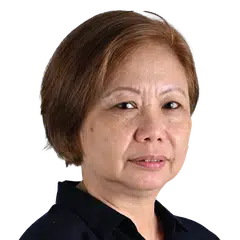Different paths, one calling: 3 nursing leaders receive President’s Award for Nurses
Sign up now: Get ST's newsletters delivered to your inbox
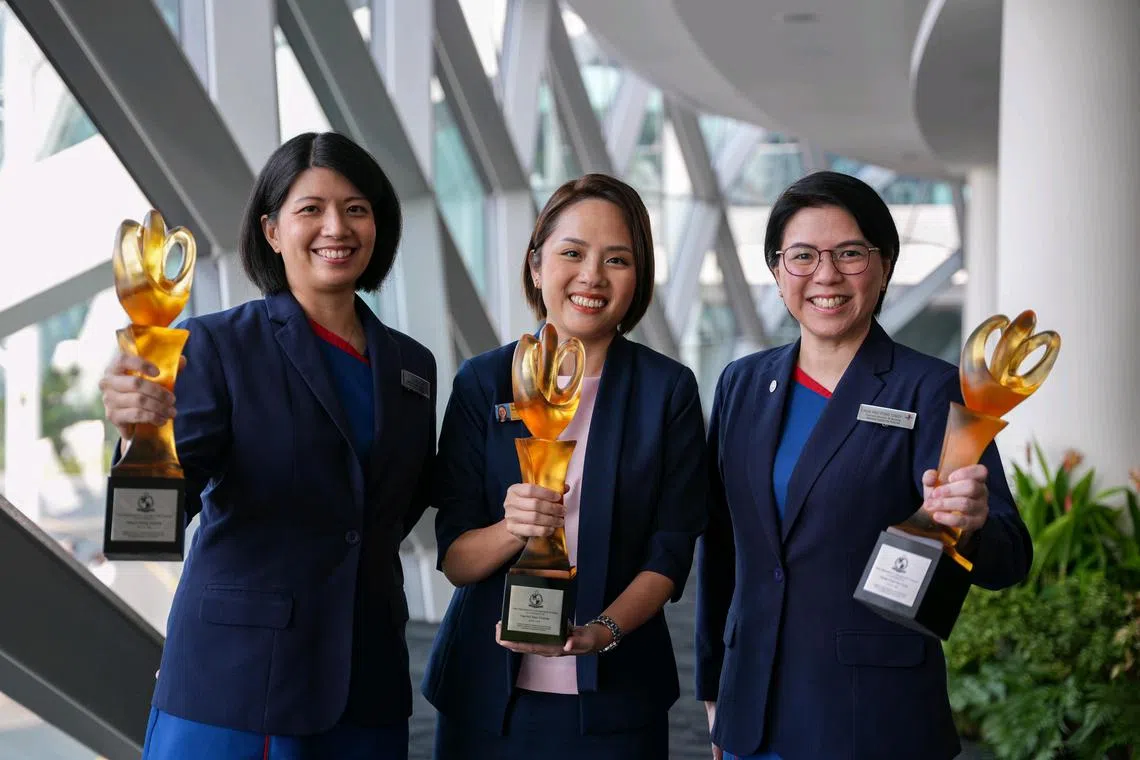
(From left) NTFGH assistant director of nursing Clarice Wee, KTPH deputy director of nursing Yvonne Yap and NUH assistant director of nursing Cindy Chua.
ST PHOTO: BRIAN TEO
- Wee, Chua, and Yap received Singapore's President's Award for Nurses, the highest honour in nursing, recognising their outstanding contributions.
- Wee overcame parental objections to pursue her nursing passion.
- Chua shaped respiratory care nursing and implemented innovations at NUH, while Yap enhanced staff well-being and community healthcare at KTPH.
AI generated
SINGAPORE - Ms Clarice Wee pursued her childhood dream of becoming a nurse against the wishes of her parents. Ms Cindy Chua stumbled into nursing after dropping out of junior college, while Ms Yvonne Yap learnt to care for others when tagging along with her mother to do community work.
On July 25, the trio were recipients of the President’s Award for Nurses, Singapore’s highest accolade for the profession. They received the award from President Tharman Shanmugaratnam at a ceremony held at Gardens by the Bay.
Ms Wee, 39, assistant director of nursing at Ng Teng Fong General Hospital (NTFGH), had declared at the age of seven that she wanted to be a nurse.
A decade later, her dream did not die when she graduated from secondary school.
But her parents, who were rooted in the banking and finance world, were not supportive of her ambition.
“They did not want me to suffer the long nights and the hard work as a nurse. They made a pact with me, that I had to study at a junior college (first), hoping I would change my mind. If I still wanted to become a nurse, I needed to get a degree at Australia’s top nursing school,” she told The Straits Times.
It was only when Ms Wee graduated in 2006 with a Bachelor of Nursing degree from La Trobe University in Melbourne that her parents realised that she was passionate about her choice of career.
“They actually said it was good to have a nurse in the family,” she said, with a laugh.
Ms Wee later became the first Advanced Practice Nurse (APN) at NTFGH, where she drove APN development, among other achievements.
An APN is a Registered Nurse who has acquired the expert knowledge base, complex decision-making skills and clinical competencies for extended practice. They are trained in the diagnosis and management of common medical conditions, including chronic illnesses.
Ms Wee also took on key leadership roles, leading the emergency department’s nursing team during the Covid-19 pandemic.
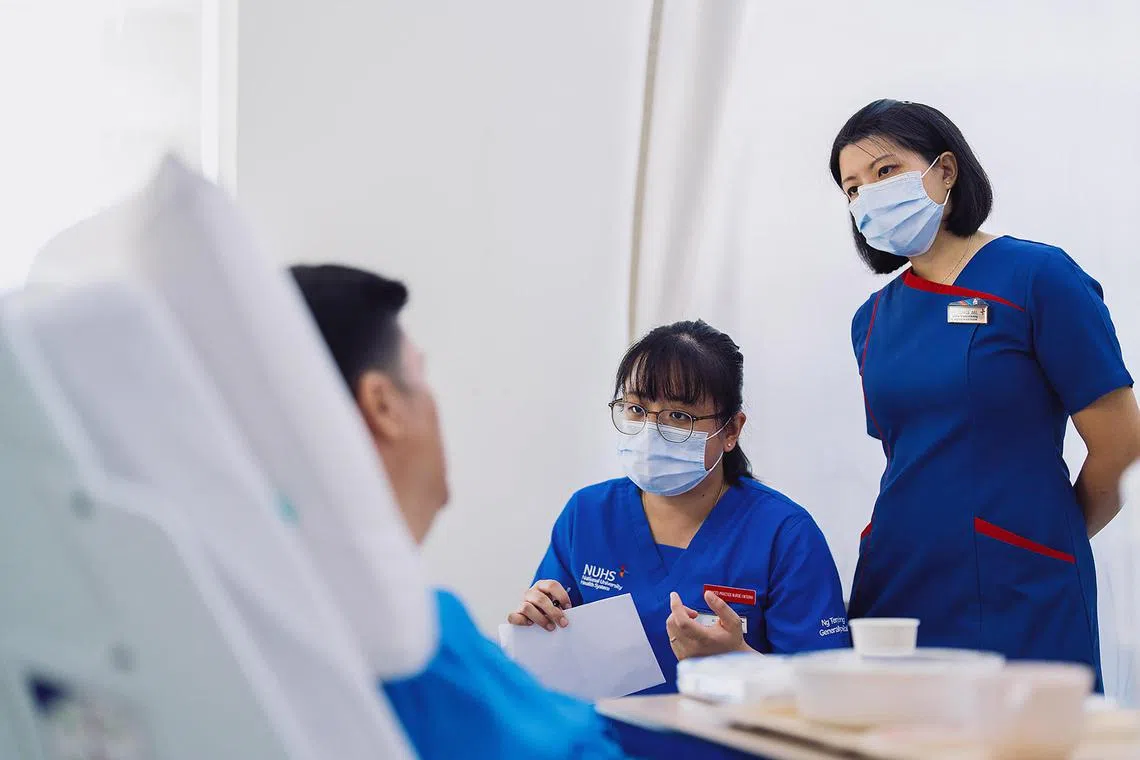
Assistant director of nursing at Ng Teng Fong General Hospital Clarice Wee (right) took on key leadership roles, leading the emergency department’s nursing team during the Covid-19 pandemic.
PHOTO: NUHS
Ms Chua, 47, assistant director of nursing at the National University Hospital (NUH), dropped out of junior college after the first year because she was “playful and did not do well” in her studies.
That turned out to be a blessing in disguise, as she went on to find her calling – she and a friend decided to pursue a diploma in nursing at Nanyang Polytechnic (NYP), where she graduated in 1998.
Posted to the intensive care unit after getting her advanced nursing diploma, she initially found the work “daunting because of the many unknowns”.
“Things were done differently from when I was posted to the general ward. Eventually I began enjoying the adrenaline flow and learning a lot of new things,” said Ms Chua.
After she became an APN, she shaped respiratory care nursing as a formal speciality, and trained more than 60 specialised nurses.
She also led the implementation of nursing innovations in the ICU, such as the bi-directional smart pump, which can receive medication orders from, and send infusion data back to, the electronic health record.
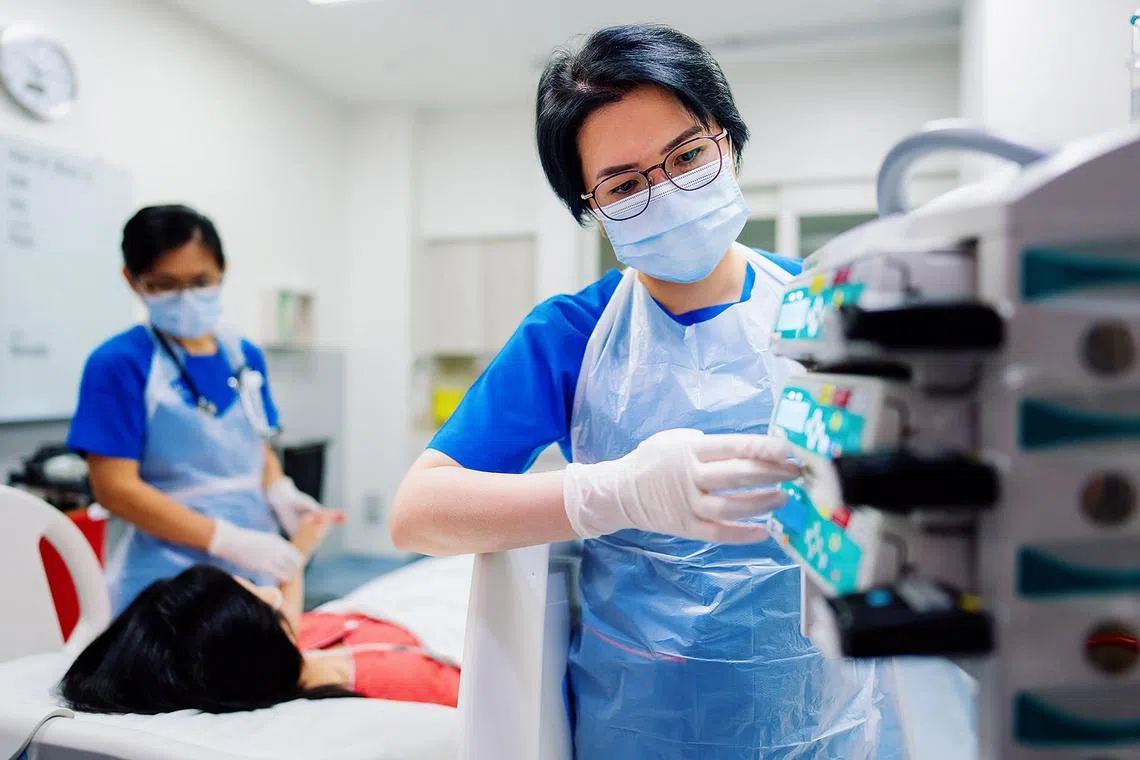
Assistant director of nursing at National University Hospital Cindy Chua operating the bi-directional smart pump.
PHOTO: NUHS
For Ms Yap, 37, deputy director of nursing at Khoo Teck Puat Hospital (KTPH), her journey to becoming a nurse was partly inspired by her widowed mother.
“My father died when I was only nine and my mother single-handedly brought me up. I went everywhere with her as she volunteered with the community. That was when my love for people started,” said Ms Yap, who studied nursing at NYP.
She also learnt resilience through her aunt and cousin, who are both nurses.
Once she stepped into the realm of nursing, she realised “there was no turning back”.
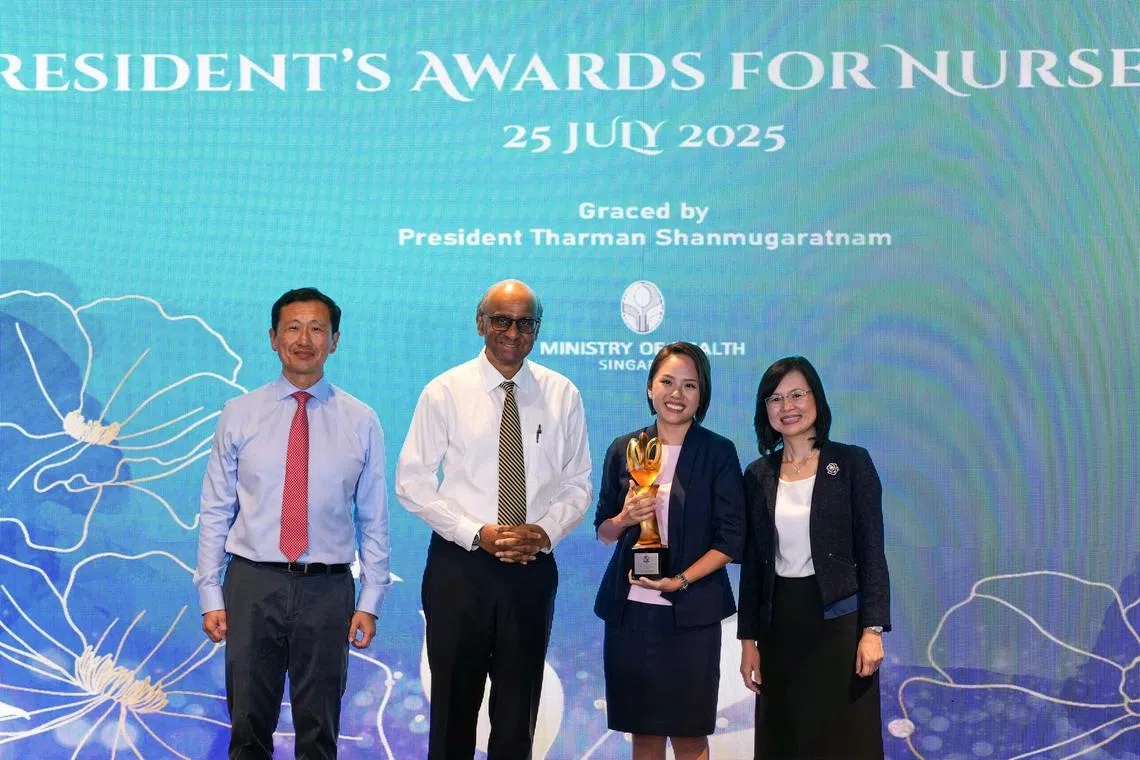
KTPH deputy director of nursing Yvonne Yap (second right) on stage with President Tharman Shanmugaratnam, Health Minister Ong Ye Kung (left) and MOH chief nursing officer Paulin Koh at the award ceremony on July 25.
ST PHOTO: BRIAN TEO
To enhance staff well-being at KTPH, Ms Yap helped to get rid of the nurses’ challenging four-day continuous shifts. Beyond the hospital, she has also worked to shape healthcare in the community.
“I’m very humbled by this award as I believe I could not have done it on my own. I must give credit to my mentors, my multidisciplinary colleagues and of course, my family. This award is also very special as KTPH celebrates its 15th anniversary this year,” she said.
Launched in 2000, the President’s Award for Nurses honours sustained outstanding performance and contributions to patient care delivery, education, research and administration.
The award is open to nurses and midwives from healthcare institutions in the public, private and community care sectors, as well as the educational institutions.
Candidates are nominated by their institutions, public or peers, and interviewed by a panel.
Since the award was inaugurated, there have been 101 recipients, including the latest batch of nurse leaders.
Ms Chua said receiving the President’s Award is like “getting the Miss Universe title”: “It comes with the responsibility to do your best and continues as a role model for younger colleagues.”

